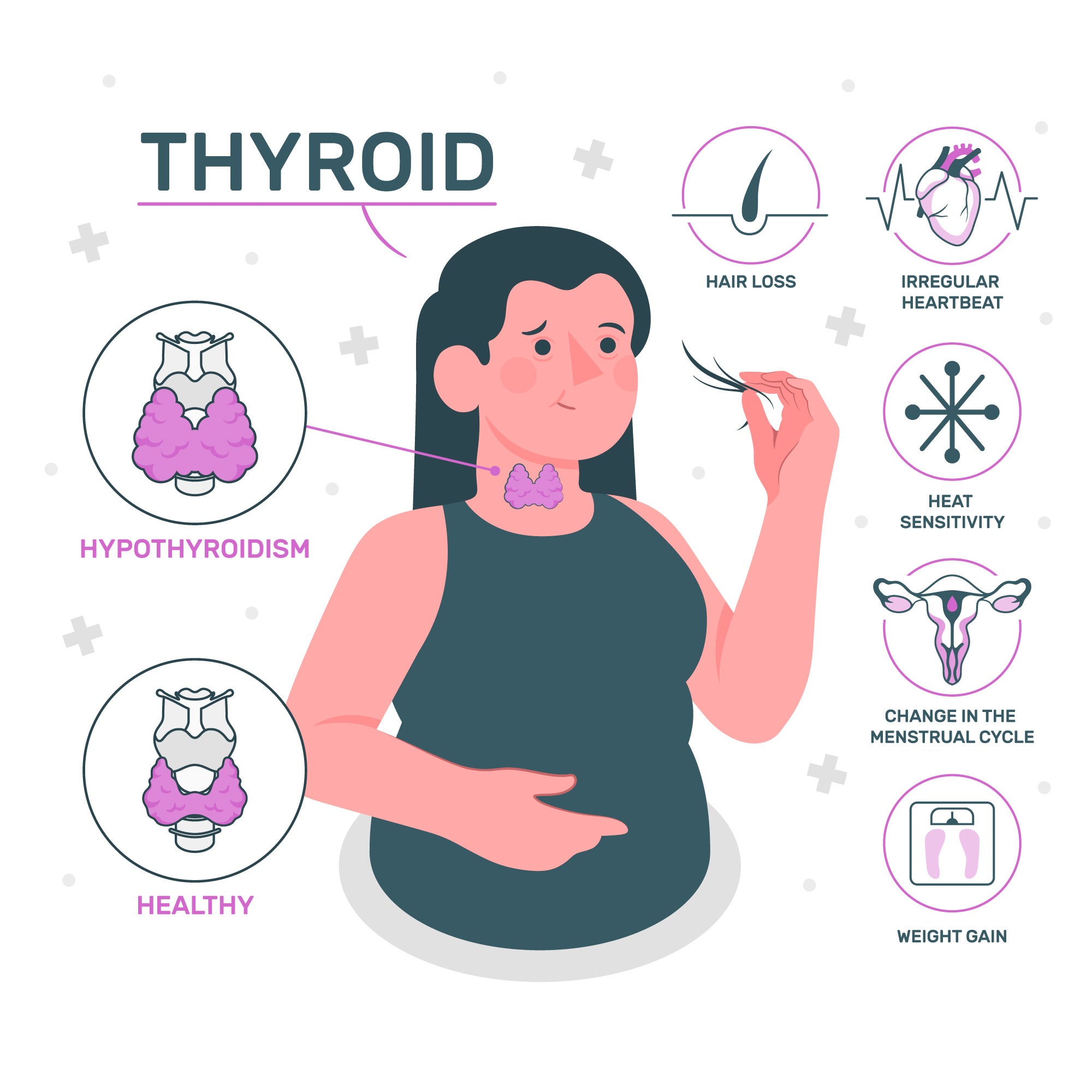There are more than 80 different autoimmune diseases. Each is a story in itself in terms of diagnosis and treatment. Every disease has its own symptoms, but they all have in common severe fatigue, which is a common sign of autoimmune diseases. The most common are autoimmune thyroid disease, rheumatoid arthritis, systemic lupus erythematosus, multiple sclerosis, autoimmune diabetes, celiac disease, Crohn’s disease, autoimmune kidney disease, and psoriasis. Here are the 14 most common.
-
Type 1 diabetes
The pancreas produces the hormone insulin, which helps regulate blood sugar levels. In type 1 diabetes, the immune system attacks and destroys the cells that produce insulin in the pancreas. High blood sugar can cause damage to blood vessels as well as organs, such as the heart, kidneys, eyes, and nerves. -
Rheumatoid arthritis (RA)
In rheumatoid arthritis (RA), the immune system attacks the joints. This attack causes redness, heat, pain, and stiffness in the joints. Unlike osteoarthritis, which usually affects people as they age, RA can start as early as 30 or earlier. -
Psoriasis
Skin cells usually grow and are then excreted when we no longer need them. Psoriasis causes skin cells to multiply too quickly. Additional cells accumulate and form inflamed red spots, usually visible on the skin as silvery-white scales. Even up to 30% of people with psoriasis develop swelling, stiffness, and joint pain. This form of the disease is called psoriatic arthritis. -
Multiple sclerosis (MS)
Multiple sclerosis (MS) damages the myelin, the protective coating that surrounds nerve cells, in your central nervous system. Damage to the myelin sheath slows the rate at which messages are transmitted between the brain and spinal cord to and from the body. This damage can lead to symptoms such as numbness, weakness, balance problems, and walking difficulties. -
Systemic lupus erythematosus (SLE)
Although doctors first described lupus in the 1800s as a skin disease due to the rash it often produces, the systemic form, which is the most common, actually affects many organs, including the joints, kidneys, brain, and heart. Joint pain, fatigue, and rashes are among the most common symptoms. -
Inflammation of the intestine
This is caused by inflammation of the intestinal wall. Different parts of the gastrointestinal tract may be at risk. Crohn’s disease can cause inflammation of any part of the GI tract, from the mouth to the anus. Ulcerative colitis affects only the lining of the colon and rectum. -
Addison’s disease
Addison’s disease affects the adrenal glands, which produce the hormone cortisol, aldosterone, and androgenic hormones. Too little cortisol can affect the way carbohydrates and sugar (glucose) are consumed and stored in the body. Symptoms include weakness, fatigue, weight loss, and low blood sugar. -
Graves’ disease
Graves’ disease attacks the thyroid gland in the neck, causing it to produce too many hormones. Thyroid hormones control the body’s energy expenditure, known as metabolism. If you have too many of these hormones, your physical activity increases, causing symptoms such as nervousness, rapid heartbeat, heat intolerance, and weight loss. -
Sjögren’s syndrome
This condition attacks the glands that provide lubrication to the eyes and mouth. Typical symptoms of Sjögren’s syndrome are dry eyes and dry mouth, but it can also affect joints or skin. -
Hashimoto’s thyroiditis
In Hashimoto’s thyroiditis, the production of thyroid hormones slows down and is deficient. Symptoms include weight gain, sensitivity to the cold, fatigue, hair loss, and swelling of the thyroid gland (goitre). -
Myasthenia gravis
Myasthenia gravis affects nerve impulses that help the brain control muscles. When communication between nerves and muscles is disrupted, signals cannot direct the muscles to contract. The most common symptom is muscle weakness, which worsens with activity and improves with rest. -
Autoimmune vasculitis
Autoimmune vasculitis occurs when the immune system attacks blood vessels. The resulting inflammation narrows the arteries and veins, causing lower blood flow through them. -
Pernicious anaemia
This condition is caused by a lack of protein produced by the cells of the gastric mucosa, also known as the intrinsic factor, needed for the small intestine to absorb vitamin B-12 from food. Without this vitamin, a person will develop anaemia, and the body’s ability to synthesize DNA properly will change. -
Celiac disease
People with celiac disease cannot eat foods that contain gluten, a protein found in wheat, rye, and other cereal products. When gluten is in the small intestine, the immune system attacks that part of the gastrointestinal tract and causes inflammation.
Ending: If you or someone you know is experiencing symptoms that may suggest an autoimmune condition, it's essential to seek medical advice. Consult with a doctor to receive a proper diagnosis and explore the best treatment options. For additional support or guidance on managing symptoms, consider reaching out to Functional Vitamins, where we provide resources and supplements that may help ease autoimmune symptoms naturally.












Leave a comment
This site is protected by hCaptcha and the hCaptcha Privacy Policy and Terms of Service apply.